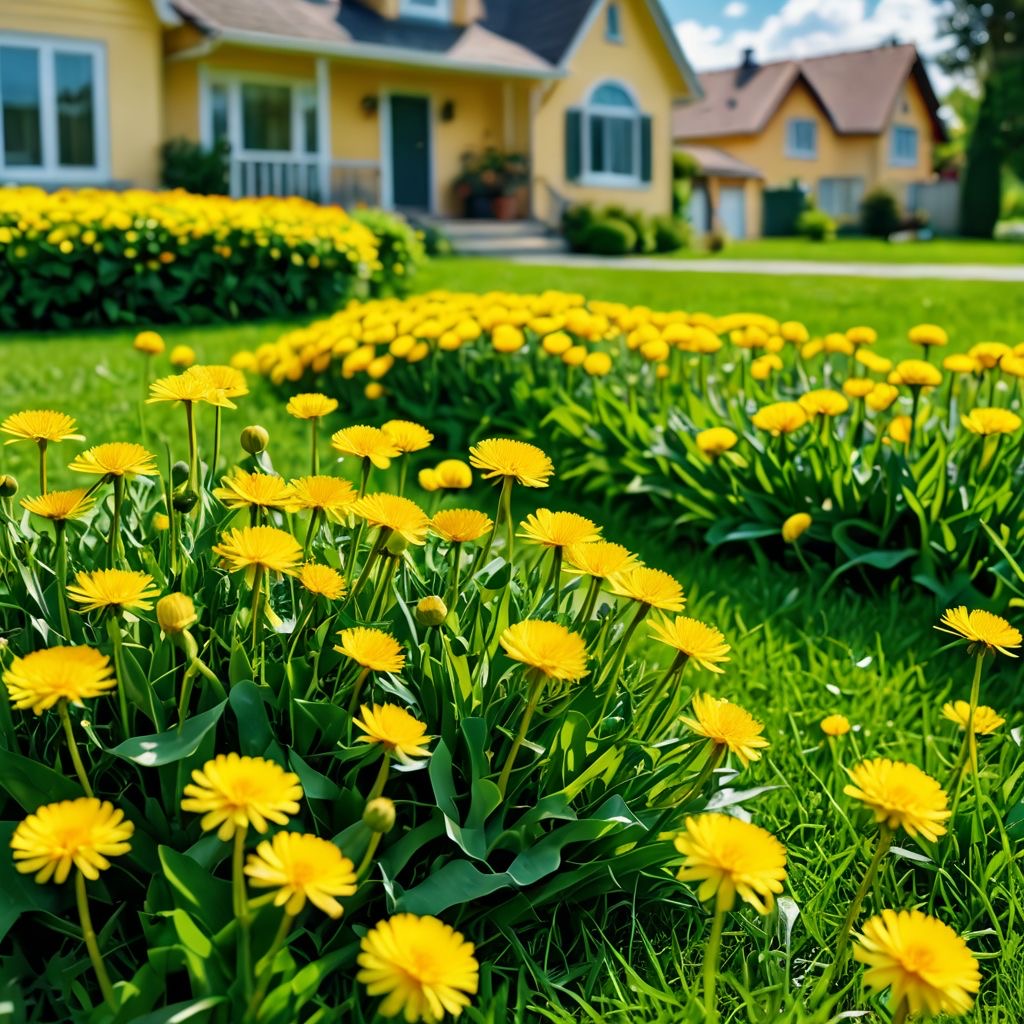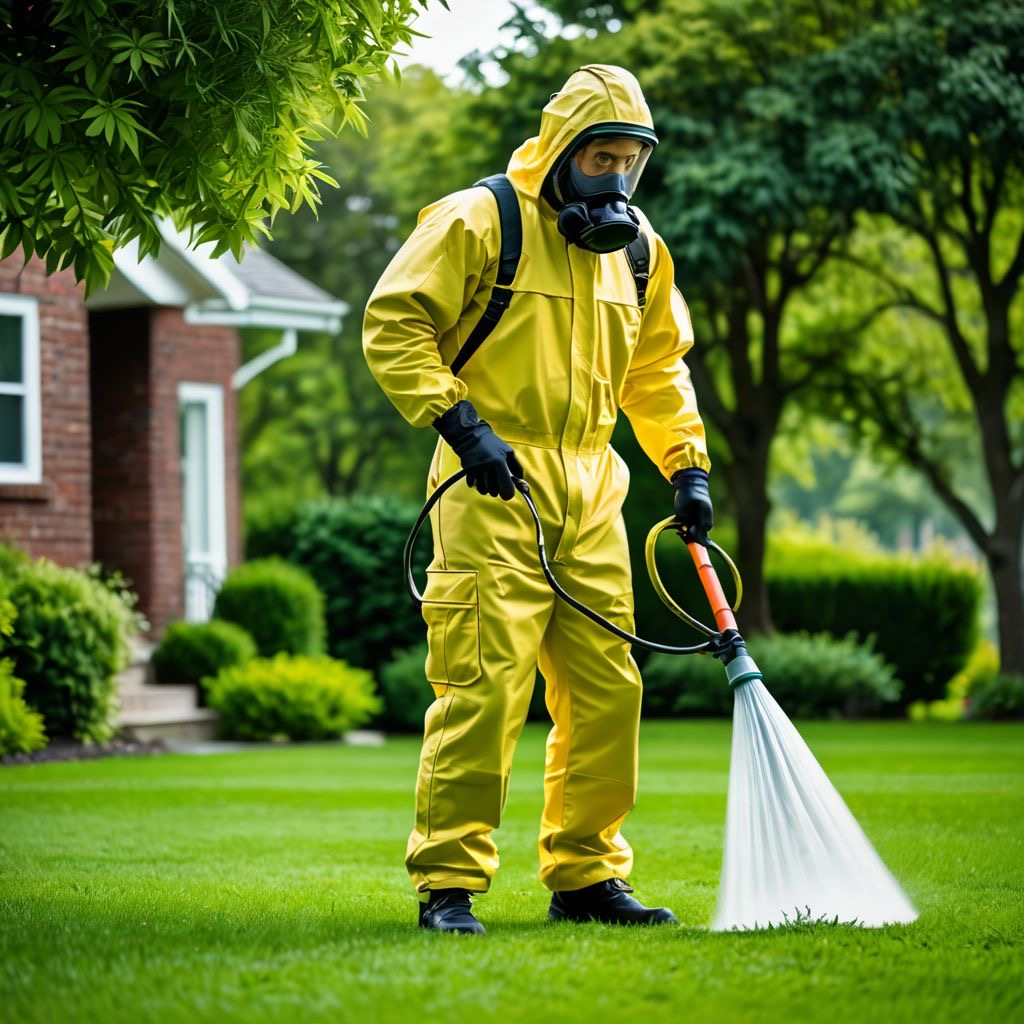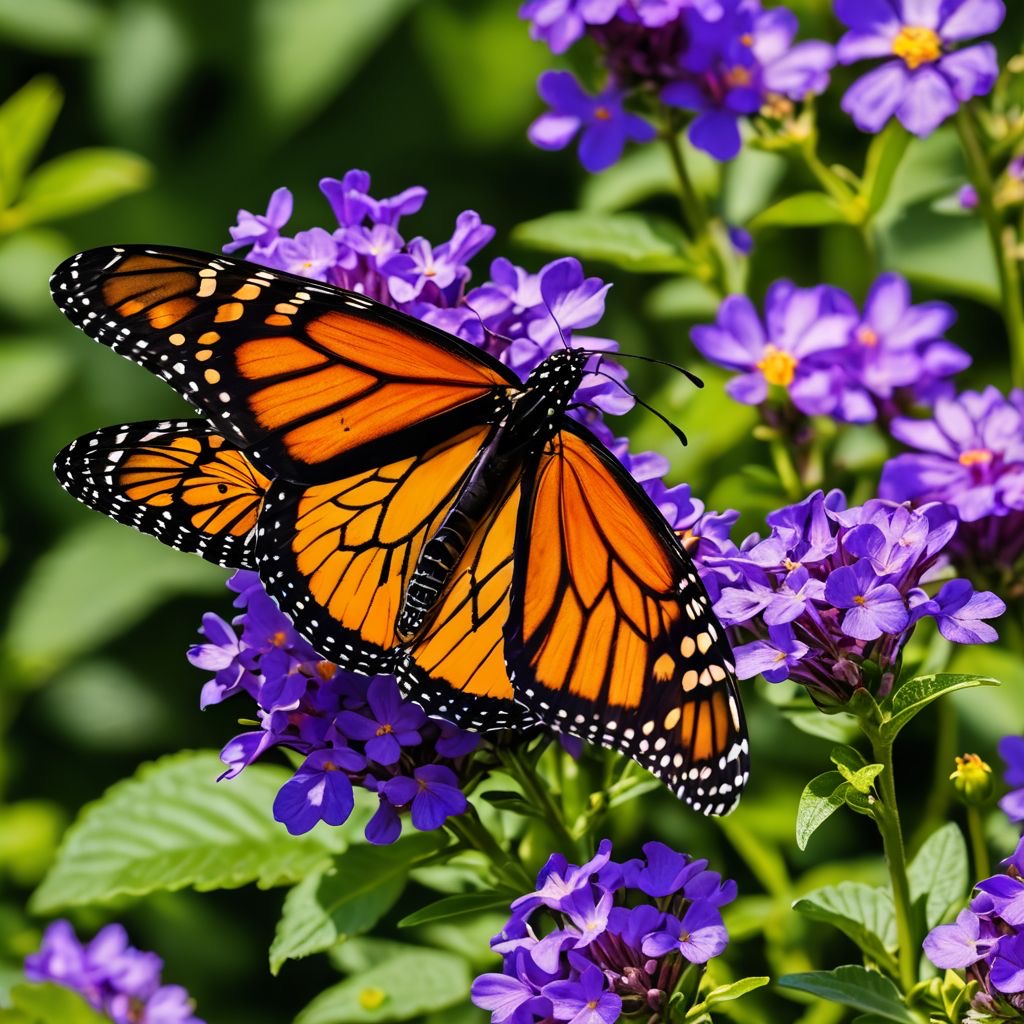
Table of Contents:
1. Introduction
2. Understanding Chemical Weed Killers
- 2.1. What Are They?
- 2.2. Types
3. Pros
4. Cons
5. Safety Considerations
- 5.1. Safety for Your Lawn
- 5.2. Safety for Your Family
- 5.3. Safety for Your Pets
6. Best Practices for Their Use
7. Alternatives to
8. When to Consider Professional Help
9. Conclusion

Introduction:
Picture this: it’s a sunny Saturday morning and you’re sipping your coffee while admiring your yard (or at least that’s the vision you’d like to have). But wait! Is that a rogue dandelion waving at you? Or worse, a cluster of crabgrass plotting your yard’s takeover? The thought of chemical weed killers might arise as a tempting solution.
Where did they come from so fast?

But before you grab the spray can and go full-on Rambo on those weeds, let's dig into whether non-organic weed killers are a good idea for unwanted plant control and if they are safe for your lawn, your family, and your beloved pets. Spoiler alert: it’s not a black-and-white answer, and some side effects are definitely lurking in the shadows!
Grab your favorite snacks, get comfy, and let’s dive into the sticky and sometimes prickly topic of chemical weed killers.
---
Understanding Them:
2.1. What Exactly Are They?
Chemical herbicides are substances designed to eliminate unwanted plants, commonly known as weeds. They are designed to be powerful and effective, targeting specific types of plants while (in theory) leaving your lawn and desired plants unharmed. You might even say they’re the superheroes of unwanted plant control—if superheroes sometimes wreak havoc in their quest for justice, that is.
2.2. Types
Not all heroes wear capes (or, in this case, come in the same bottles). There are two primary categories of herbicides:
1. Pre-emergent Herbicides: These stop weed seeds from germinating. Think of them as the gatekeepers that prevent the party crashers from even showing up!
2. Post-emergent Herbicides: These are applied to actively growing weeds and are designed to eliminate them once they’ve dared to appear in your yard. They can be selective (targeting certain types of plants) or non-selective (killing everything in their path).

Pros:
Let’s start with the positives—because who doesn’t love a good highlight reel?
1. Effectiveness: Chemical herbicides can be very effective at eliminating tough weeds quickly. In many cases, you’ll see results in just a few days.
2. Convenience: They’re easy to apply, often requiring little more than a spray bottle or spreader. This means you can handle the task without significant effort and in minimal time—hello, instant gratification!
3. Targeted Solutions: With the right product, you can target specific weeds without disrupting your lawn’s health. This means fewer dandelions, and potentially fewer cringe-worthy embarrassing barbecue moments when neighbors see your rogue garden.
4. Long-Lasting Effects: Some chemical herbicides come with residual effects that continue to suppress weed growth for several weeks or even months.
Cons:
Now, let’s not get carried away with the superhero narrative. Every hero has a kryptonite—and these are no different. Here are some drawbacks:
1. Environmental Concerns: Chemical herbicides can have negative effects on surrounding plants, beneficial insects, and local wildlife. Using them irresponsibly can lead to pesticide runoff, affecting water sources and ecosystems.
Chemicals are not good for these little ones!

2. Health Risks: There are ongoing debates regarding the safety of chemical herbicides for humans. Some studies have linked certain types of herbicides to serious health issues, sparking concerns among families who want to keep themselves and their loved ones safe.
3. Potential Lawn Damage: If misapplied or used improperly, they can harm desirable plants, making them look frail and patchy—something no one wants to see in their yard maintenance plan.
4. Resistance Development: Over time, certain noxious plants can become resistant to specific chemical treatments, meaning you could end up in a noxious plant war where your current arsenal is less effective. This sneaky evolution makes it an ongoing battle.
Safety Considerations:
Ready to chat about your landscaping goals?

Reach out by call or text to: 204-229-9789 or click here to submit your information today to arrange a “no obligation” introductory phone call. We look forward to helping you transform your yard.
Tips on how to prepare for a consultation meeting with a landscape contractor
3. Herbicides: The Green Thumbs' Sorry Enemy:
5.1. Safety for Your Lawn
As with any superhero story, there are rules to follow. Make sure to:
- Read Labels: Always read and follow the manufacturer’s instructions carefully. This ensures that you know how much to apply and when to do it.
- Apply Wisely: Best practices dictate applying these herbicides on calm days to avoid drift onto desirable plants. Aim for late morning when dew is off the grass, and stay away from windy days or rain—unless you want a yard looking like a mini desert.
Safety is #1

5.2. Safety for Your Family
Here’s where it gets a bit dicey:
- Exposure Risks: Keep children and non-target animals away from treated areas for the recommended time after application. That means, while the grass is working hard to be weed free again, you shouldn't let the kids turn it into a play zone.
- Ventilation is Key: If you're using a spray product indoors (which, let’s be honest, you really shouldn’t), make sure the area is well-ventilated.

5.3. Safety for Your Pets
We all worry about our four-legged furry family members:
- Pet Precautions: Similar to children, keep your pets away from treated areas. Dogs (and their insatiable curiosity) might decide that a freshly sprayed patch of grass is the perfect spot to roll around. That wouldn't be good for the dog.
- Check for Toxicity: Some of these products can be extremely toxic to pets if ingested, so it's worth checking the Active Ingredients on the bottle to assess any risks.
Best Practices for Using Chemical Weed Killers:
If you decide to forge ahead with chemical weed killers, consider these best practices:
1. Timing: Apply during dry conditions when there's no rain forecast for at least 24 hours. Dry conditions allow for better absorption, and less chance of runoff.
2. Spot Treatment vs Broadcast: Instead of spraying entire areas, focus on the weeds themselves. This targeted application reduces the chances of harming nearby plants.
3. Follow-Up: After applying these products, regularly inspect your lawn. You’ll need to stay vigilant since some unwanted plants can be persistent little buggers.
4. Water Wisely: Avoid watering the lawn immediately after application. Follow the label instructions for watering; many products will state how long to wait before re-watering.
Alternatives:
Healthy & Eco-Friendly Winnipeg Garden Ideas
If your heart is leaning towards an eco-friendly solution (or if you just want to avoid the stress of potential mishaps with chemicals), fear not! There are safer alternatives to get the job done:
1. Manual Removal: Pulling by hand or using a weeding tool is labor-intensive but can be satisfying and environmentally friendly. Bonus points for a good workout!
2. Boiling Water: Pouring boiling water directly onto the plants is like giving them an unwelcome hot tub experience. Use caution and make sure to aim for those weeds only!
3. Vinegar: The high acetic acid content can effectively kill certain weeds. Just like using a “little white lie,” you’ve got to be cautious to avoid collateral damage to your favorite plants.
4. Mulching: Laying down mulch is an excellent way to suppress unwanted plants naturally. It not only looks good, but also helps retain moisture—a win-win!
5. Corn Gluten Meal: This is a natural pre-emergent herbicide that can prevent seeds from sprouting, making it an option worth exploring for a more eco-conscious approach.

When to Consider Professional Help:
Sometimes, navigating the world of weed control can feel like a labyrinth. If you find yourself overwhelmed despite your best solo efforts, it might be time to call in the experts.
1. Hiring Professional Lawn Services: Search for lawn care companies Winnipeg or lawn care companies near me, if you need help controlling an out-of-control lawn situation. Services like "grass cutting near me", "yard maintenance" or “affordable lawn care near me” can lead you to a number of very good options to consider if you would just as soon offload these tasks to “the Pros”.
2. Customized Solutions: Professional lawn service companies often have tailored solutions and can offer affordable lawn care pricing that reflects the specific needs of your yard and your budget.
3. Peace of Mind: If safety is your main concern, professionals can take the weight off your shoulders as they’ll be equipped and knowledgeable about the safest practices.
Conclusion:
Chemical herbicides can be effective tools for controlling these unwanted intruders, but they come with a host of considerations for health, safety, and environmental impact. Whether you choose to go the chemical route or explore natural alternatives, make sure you weigh all your options carefully.
Remember, climbing the mountain of yard maintenance can be a daunting journey, but with the right approach and the right assistance, you can find solutions that work best for your lawn, family, and furry friends. Whether using a chemical solution or you prefer the organic route, the goal is always the same: a weed-free paradise that you can so casually admire over your morning coffee.
So, what’s the verdict? Keep on tackling those pesky pests with confidence and determination, whatever your strategy may be!
Don't miss out! Click here to subscribe today and get the latest blog posts delivered straight to your inbox.

Ready to take the next step? click here to contact us today to arrange a “no obligation” introductory phone call and let’s explore how we might be able to help you.
At Sunshine, we take a great deal of pride in delivering “top-notch” service. But don't just take our word for it. Here's what our customers have to say about their experiences with us:
• Ray and his crew are outstanding. I had the pleasure of using their services with a large commercial property. The service provided, and the detail and care that went into tending to every matter, was truly remarkable. Ray was always available and quick to respond to any calls or emails. His manner and Customer Service is excellent. I would highly recommend Sunshine to anyone looking for a commercial or residential property service.
Shelly S.
️
️
️
️
️
• I have been using Sunshine for a couple of years now, and without exception, it has been amazing customer care. Normal months for snow plowing and snow removal are November to March. For both years, Ray and his company have exceeded this boundary to provide great customer support, and clear our walks and back drive area. The great snowfall of October a couple of years ago, to just our most recent Manitoba snowfall. There has never been a day that snowed, that our walks weren’t cleared first thing in the morning. I would highly recommend this team!!
Michelle P.
Please NOTE: This Michelle P. review was provided directly from the customer's email **This is Not a Google Review**
COMMERCIAL REFERENCES:
Hannah Mailloux, Property Manager
Capital Property Management
hannah.mailloux@capitalgrp.ca
Susan Wong, Property Manager
Karma Properties
susan@karmaproperty.ca
204-415-5712 ext. 201
Jean Reuther, Property Manager
D7 Property Management
jean@D7management.com
If Sunshine can help you, contact us to to schedule a consultation:
Call or text Ray directly today: 204.229.9789
or email: ray.chastko@sunshinemaintenance.ca


